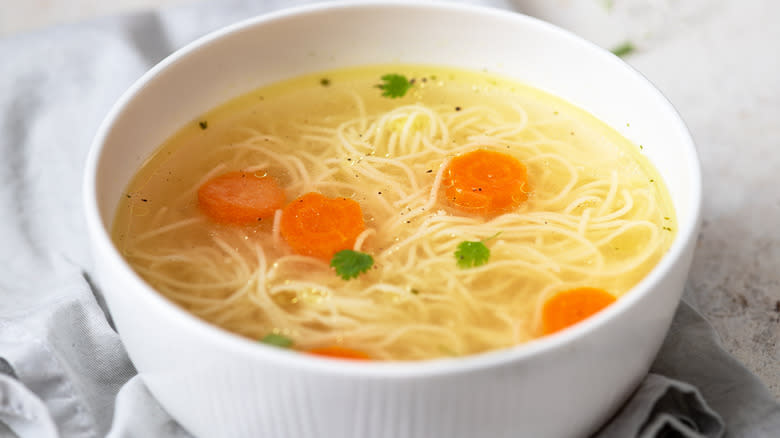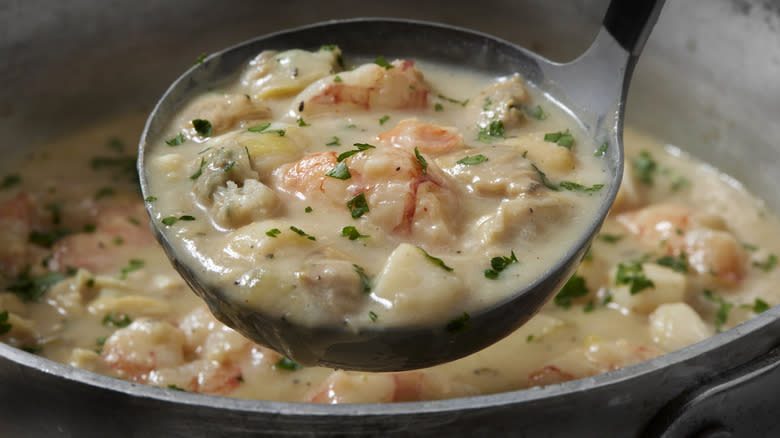Vinegar Is The Ingredient You Need To Counteract Over-Salted Soup

There's a fine line between a perfectly salted soup and one that tastes as saline as the ocean itself. The broth is better when properly seasoned, but a single extra dash of salt can take your meal overboard and make it difficult to enjoy. However, even if you've gone a little heavy-handed with the salt shaker, there's still a way to salvage that pot of brine — and you likely already have the secret ingredient in your pantry. Just a glug of vinegar can save the day and make your soup edible again.
Vinegar is high in acid, which is the key to balancing out a dish that's been oversalted. While adding vinegar won't reduce the amount of sodium in the pot, the sharp tang of this condiment can help equal out the salty flavor on your tastebuds, masking the brininess of an oversalted soup and making it easier to eat. Start with a small amount at first and add more slowly, tasting as you go, until your broth is back in balance.
Read more: 12 Discontinued Store-Bought Soups We Aren't Getting Back
Which Vinegars Are Best For Neutralizing Salty Soup?

When it comes to selecting vinegar for salty soups, there are plenty of options. But not every variety will meld well into your broth, so be mindful and select a type that will provide acidity without overpowering the existing ingredients. For soups with a lighter base, choose a similarly light variety such as white wine vinegar, apple cider vinegar, or even rice wine vinegar (a popular ingredient in Chinese and Japanese soups). Classic white distilled vinegar can also work, but it's quite sharp, so use it sparingly.
If your soup has more of a rich tomato or beef base, it may be able to stand up to the more intense flavors of stronger varieties. Red wine vinegar and balsamic vinegar, for example, can meld beautifully into beef soups and stews — and even provide a bit of extra depth of flavor to the broth. However, if you don't happen to have vinegar on hand, other acidic ingredients will work in a pinch as well. A squeeze of lemon or lime, or even some tomatoes can also add that touch of tartness that will help even out your soup's seasonings.
Add Vinegar To Begin With To Avoid Oversalting

While vinegar can help save the day if your soup's too salty, adding a splash of this condiment into your broth during the initial seasoning process can also help keep the dish from needing so much salt in the first place. Vinegar, much like salt, is a flavor enhancer — it not only imparts its own taste and acidity to a soup, but in small quantities, it helps to bring out the brightness of other ingredients as well.
By adding a splash of an acidic ingredient to your soup as you cook it, you'll reduce the need to add as much salt, while still highlighting and deepening the flavors in the pot. So try keeping a little on hand, not just for emergencies, but as a useful and delicious ingredient in its own right as well. Your next soup will be all the more flavorful with just a dash of it in the broth.
Read the original article on Daily Meal.

 Yahoo Sports
Yahoo Sports 
